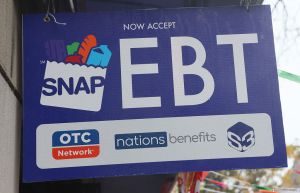Cheaper food could contribute to the obesity problem in the United States.
Two out of every three Americans are overweight or obese, and the rates have been on the rise over the past few decades, an American Cancer Society news release reported.
Reasons for this rise in obesity have been suggested, such as "snack food, automobiles, television, fast food, computer use, vending machines, suburban housing developments, and portion size," the news release reported.
This means a number of solutions could help contribute to a drop of obesity, including: "encouraging physical activity and decreasing access to high calorie foods, to building more exercise-friendly environments, increased labeling, or even levying taxes on some foods," the news release reported.
The researchers looked at available evidence and determined that a "widespread availability" of unhealthy and inexpensive food could be one of the primary contributing factors.
"Americans are spending a smaller share of their income (or corresponding amount of effort) on food than any other society in history or anywhere else in the world, yet get more for it," the researchers wrote, the news release reported.
The researchers believe the evidence for the other contributing factors are present, but less strong.
"Examining time trends for which there are data, what jumps out are changes in food availability, in particular the increase in caloric sweeteners and carbohydrates," the researchers wrote, the news release reported.
The researchers suggest that public campaigns focus on "positive" messages such as eating more fruits and vegetables or exercising more might not be as effective as other approaches. Highlighting the importance of reducing calorie intake, especially in sweet and salty snacks, could be a more effective method.
"Although increasing fruit and vegetable consumption may be a laudable goal for other health reasons, it is unlikely to be an effective tool for obesity prevention," the researchers wrote, the news release reported.
© 2025 HNGN, All rights reserved. Do not reproduce without permission.








